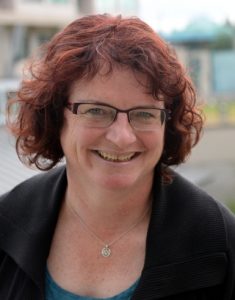
To begin I’d like to thank BCcampus for the opportunity to be part of the Scholarly Teaching Fellow program. Without their support, our team would not have been able to present our collaborative work on the sites-of-power in students-as-partners processes. The willingness of BCcampus to fund a project that was team-based and student-inclusive is a welcome recognition of student voices in our provincial, national and international conversations about teaching and learning.
Post by Heather Smith, (UNBC)
The ability to work with Roselynn Verwoord, Conan Vietch, and Yahlnaaw, reinforced the value of efforts to build authentic and open relationships and partnerships. The topics that can arise in these conversations often prompt me to revisit my assumptions and reflect on my behavior. Being a so-called senior scholar is irrelevant if I don’t continue to learn. In every instance where my work has been guided by the students-as-partners approach, learning has been off the charts. Conan reminded me that there is always power in our partnerships and students are always aware of its existence. Yahlnaaw brought an Indigenous perspective to our work and shared it in ways that required me to reflect on my own colonial assumptions. Roselynn brought a unique perspective of being a doctoral student, instructor, professional developer, and leader in the scholarship of students-as-partners. She regularly provoked me to consider the function of roles and labelling as a practice of power. None of these insights would have been possible if not for my partners. We have so much to learn from those who we label students – the question is, are faculty willing to take the risk?
One of the things that surprised me was that some of the students-as-partners literature has a patronizing tone. For example, it was assumed that by bringing students into our programming, our research, or our curriculum design, that we were doing the students a favour and somehow empowering them. Based on my experience, it is the students who are doing the faculty a favour by sharing their insights and expertise. For some students, being involved in a partnership may be consistent with their career goals, but for other students, their participation is motivated by other factors. This just reminds me that we need to always be mindful about how we frame students and their motivations.
Going forward, I’d like to be able to engage in more partnerships and to continue to work in partnership with students in my teaching and research. No matter what, I will remain a staunch advocate for partnership and the learning it provides to both sides of the conversation.
